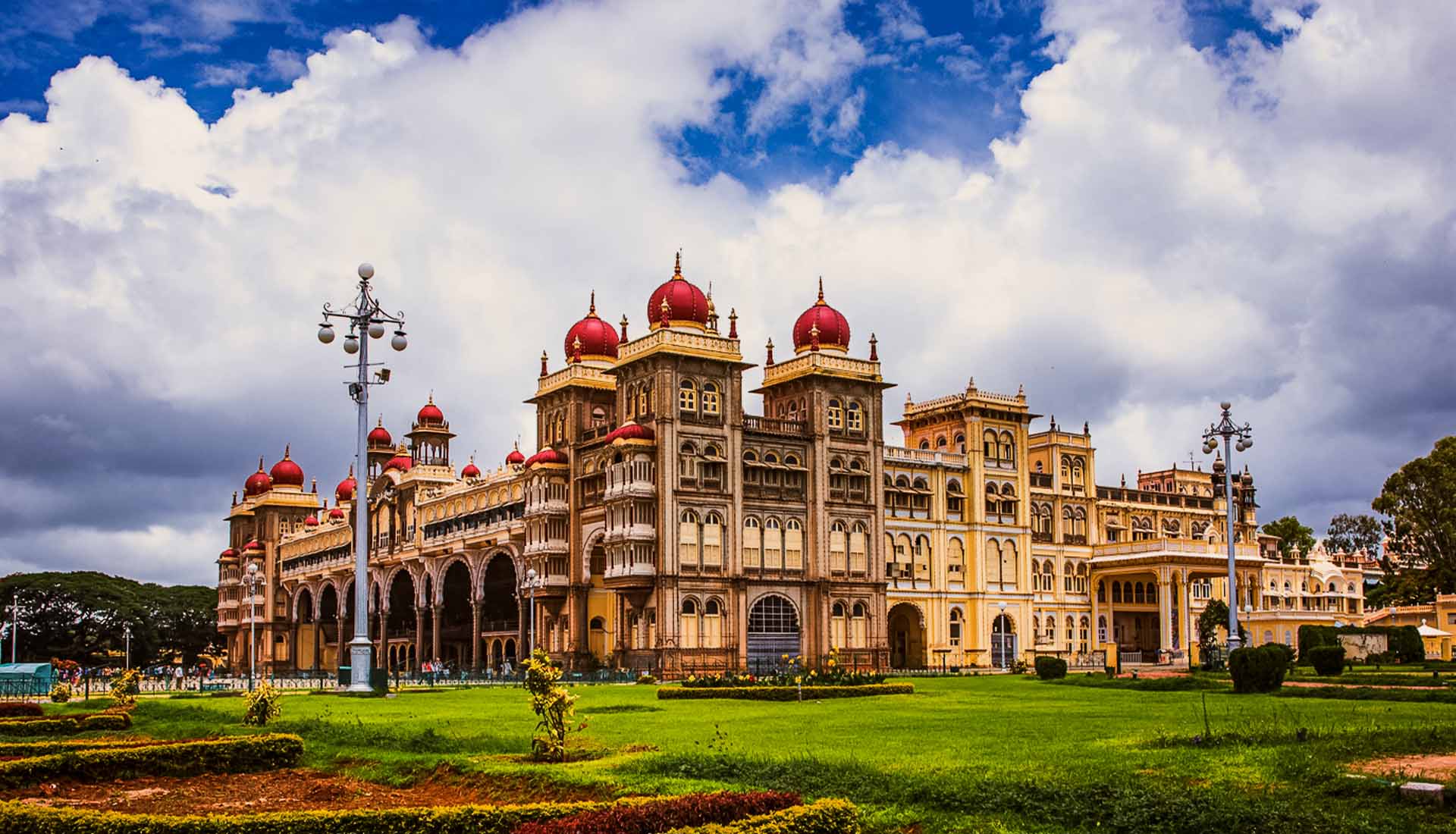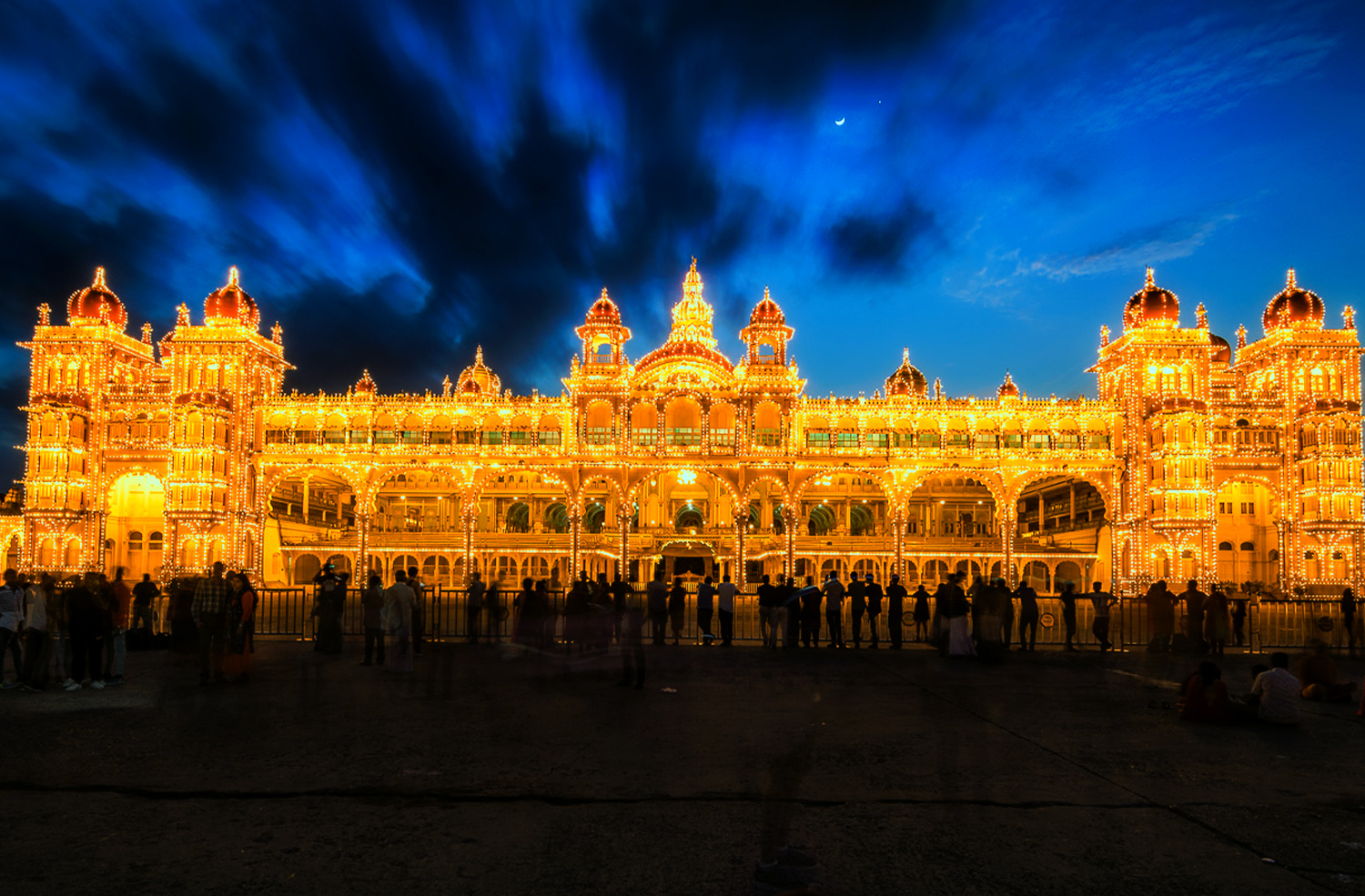Tourism and hospitality stakeholders in Mysuru have welcomed the recent cuts in Goods and Services Tax (GST) rates, calling it a timely ‘Dasara gift’ that will give a much-needed boost to the sector. With Mysuru preparing for its grand Dasara festivities, hotels, restaurants, and travel operators believe the reduced GST will attract more tourists and ease financial burdens on both service providers and customers. Stakeholders highlighted that high tax rates in recent years had discouraged domestic and international tourists, making Mysuru’s hospitality offerings less competitive compared to other destinations.
The cut is therefore being seen not just as financial relief but also as a strategic step to revive a sector that has been recovering from the pandemic. Industry representatives emphasized that lower GST rates will enable businesses to offer affordable packages, encouraging families, student groups, and international visitors to plan longer stays in the city. They also pointed out that the timing aligns perfectly with the festive season, when Mysuru sees its highest tourist inflow, making the policy shift a double boost for economic and cultural revival.
Business leaders in Mysuru’s hospitality sector underlined that the GST reduction will have cascading benefits across allied industries such as transport, retail, and local handicrafts. They explained that affordability encourages greater spending by tourists, directly benefiting small vendors, artisans, and local entrepreneurs. Hotels that were previously struggling with occupancy rates due to high tariffs expect an immediate surge in bookings as the new tax regime comes into effect.
Restaurateurs, too, believe that reduced GST will make dining out more accessible to locals and visitors alike, thereby stimulating the city’s culinary economy. Travel operators welcomed the move, stressing that competitive pricing would strengthen Mysuru’s position as a preferred destination during Dasara, a period when cultural heritage and tourism blend seamlessly. Stakeholders unanimously agreed that while government incentives are important, the real success will depend on how effectively businesses utilize the tax relief to create value for customers and generate long-term growth for the region.
Industry experts and local officials have also stressed the symbolic value of announcing the tax cuts ahead of Dasara. The festival, known as Karnataka’s ‘state festival,’ draws lakhs of visitors to Mysuru every year. With lower GST, tourists are expected to spend more freely, creating a ripple effect on the city’s economy. Government representatives highlighted that the measure reflects the state’s recognition of tourism as a vital economic driver and cultural ambassador.
Stakeholders believe that the relief will not only make travel more affordable but also help restore confidence in Mysuru’s hospitality sector, which faced unprecedented challenges during the pandemic years. They anticipate that the policy change will strengthen Mysuru’s brand as a tourist-friendly city, attracting repeat visitors and enhancing its global reputation. By aligning fiscal policy with cultural events, the move underscores the government’s effort to balance economic growth with cultural promotion, a synergy that stakeholders described as both powerful and heartwarming.
Economic Ripple Effects Beyond Tourism
The impact of GST cuts is expected to extend well beyond hotels and restaurants. Retailers, transport providers, and local artisans foresee increased business as tourists spend more on shopping, commuting, and cultural souvenirs. Stakeholders explained that when tourists save money on accommodation and dining, they are more likely to purchase traditional products such as Mysore silk, sandalwood artifacts, and Channapatna toys, giving a direct boost to local craftsmen. Auto and taxi drivers, tour guides, and small vendors at markets anticipate higher earnings as tourism activities expand. Economists noted that the tax cut is not merely a short-term relief measure but has the potential to rejuvenate the city’s entire ecosystem of small and medium enterprises connected to tourism.
Hospitality associations stressed that the cut will help operators reinvest in improving facilities and services. Many hoteliers admitted that financial pressures from high GST rates had limited their ability to upgrade infrastructure, affecting customer experience. With reduced tax burdens, businesses can allocate resources toward staff training, modern amenities, and promotional campaigns, making Mysuru’s hospitality offerings more attractive. Travel agencies said that affordable rates would also allow them to create more inclusive packages, particularly for student tours and family trips. Stakeholders hope that these improvements will not only enhance immediate festive tourism but also create sustainable growth throughout the year, strengthening Mysuru’s reputation as a cultural and tourism hub.
Long-Term Prospects and Cultural Value
Stakeholders emphasized that the GST rate cuts should be seen as a long-term investment in Mysuru’s cultural and tourism heritage. By making tourism more affordable, the policy will encourage repeat visits and word-of-mouth promotion, both crucial for sustained growth. Industry leaders noted that once tourists experience the grandeur of Dasara at reduced costs, they are more likely to return during other seasons for heritage tours, wildlife excursions, and wellness retreats. The move is expected to integrate cultural pride with economic prosperity, showing how fiscal policies can complement regional identity.
Local stakeholders also believe that the timing of the relief sends a strong cultural message. By announcing the cuts just before Dasara, the government has effectively aligned fiscal policy with Karnataka’s biggest cultural celebration. Stakeholders described this as a gesture of respect toward Mysuru’s traditions and a recognition of the city’s role as a global cultural brand. They stressed that this acknowledgment is as significant as the economic benefits, fostering goodwill between the government, businesses, and the public. Many stakeholders described the move as both a festive gesture and a strategic policy choice that will leave a lasting impact on Mysuru’s tourism landscape.
The hospitality sector in Mysuru is already reporting a surge in inquiries and early bookings, suggesting that the GST rate cuts are having an immediate effect. Stakeholders expressed optimism that this festive season will mark a turning point for the city’s tourism and hospitality industries. They emphasized that success depends on continued collaboration between government, businesses, and the community to sustain momentum beyond Dasara. For Mysuru, this ‘Dasara gift’ represents not just temporary relief but the beginning of a renewed journey in cultural tourism, blending tradition with economic vitality.
The reduced GST rates are expected to create a level playing field for Mysuru’s hospitality sector compared to other destinations in South India. For years, businesses in Mysuru complained that higher taxes made them less competitive against tourist hubs like Goa or Kerala. With the cut, hotels and restaurants can now position themselves more aggressively in regional tourism circuits, attracting both budget and luxury travelers. This competitiveness is crucial, especially during the festive season, when tourists make decisions based on affordability and value. Stakeholders believe this will drive more footfall into the city during Dasara and beyond.
Cultural tourism has always been Mysuru’s strongest selling point, and industry representatives stressed that lower GST rates will only enhance this advantage. Visitors often come to witness the grandeur of the Mysuru Palace, Chamundi Hills, and the Dasara festivities, but high costs limited extended stays. With affordability increasing, families are more likely to spend extra days exploring heritage sites, wildlife sanctuaries, and neighboring hill stations. Travel operators explained that this trend would benefit Mysuru’s wider tourism belt, ensuring surrounding districts also see increased revenue. Such an inclusive growth pattern reinforces Mysuru’s status as a holistic cultural destination.

Local hoteliers pointed out that the relief will encourage businesses to reinvest in better facilities, creating improved experiences for tourists. With reduced tax obligations, funds can be diverted toward upgrading interiors, enhancing customer services, and adopting eco-friendly practices. Hospitality experts noted that sustainable and green tourism practices, such as waste reduction and energy efficiency, can now be prioritized. This will align Mysuru with global tourism trends, making it more attractive to international travelers who increasingly choose destinations committed to environmental responsibility.
The city’s restaurateurs are equally optimistic, noting that lower GST will enable them to keep menus more reasonably priced. Food is a central part of Mysuru’s cultural identity, with iconic dishes like Mysore Pak, masala dosa, and filter coffee attracting culinary tourism. Affordable pricing is expected to bring in not only tourists but also locals who had cut down on dining out due to higher costs. This dual effect will help restaurants recover faster and sustain business momentum. Stakeholders believe Mysuru’s culinary diversity will play a larger role in promoting the city as a food tourism hub.
Economists and policy analysts see the GST cut as part of a larger vision to boost Karnataka’s overall tourism revenue. By making Mysuru more accessible, the government is strengthening the city’s contribution to the state’s economic growth. Analysts predict that if the benefits are managed effectively, tourism revenues in Mysuru could see double-digit growth in the coming year. They further highlighted that government-backed policy shifts, combined with private sector enthusiasm, can transform Mysuru into one of India’s top cultural tourism destinations, rivaling Jaipur or Varanasi in global recognition.

For local artisans and small-scale entrepreneurs, the GST cut brings hope of increased sales during Dasara. Tourists spending less on accommodation and food are expected to allocate more money toward handicrafts, textiles, and souvenirs. Artisans dealing in Mysore silk, sandalwood carvings, and rosewood inlay work expect higher demand, helping preserve traditional crafts. Vendors said that beyond economics, this demand also ensures cultural continuity. By making heritage products more accessible to visitors, the policy indirectly supports cultural preservation. This intertwining of economy and tradition is what stakeholders called the true spirit of a “Dasara gift” to Mysuru.
Follow: Karnataka Government
Also read: Home | Channel 6 Network – Latest News, Breaking Updates: Politics, Business, Tech & More

